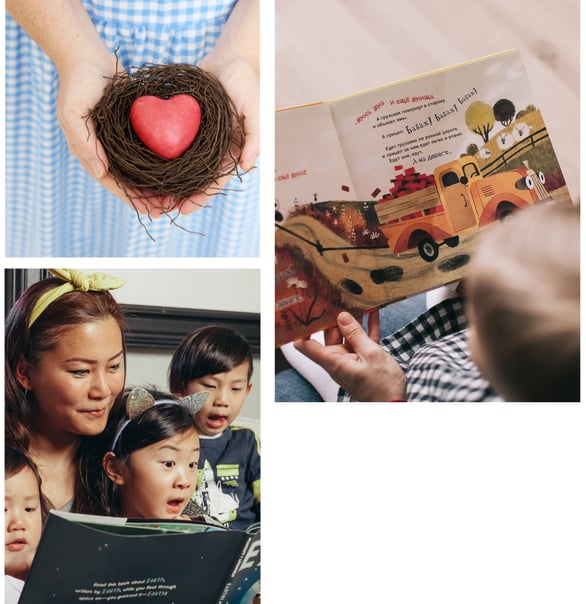Building Blocks of Education
A Sensitive Heart, Regulated Mind, and Healthy Body
11/13/20243 min read
Building Blocks of Education
A Sensitive Heart: The Foundation of Connection
A sensitive heart fosters empathy, kindness, and the ability to connect with others. It equips children to form meaningful relationships and contribute positively to their communities.
How to Nurture a Sensitive Heart:
Encourage acts of kindness, like helping a friend or volunteering.
Share stories that highlight compassion and empathy.
Teach active listening skills to help children understand and respond to others' emotions.
Why It Matters:
A sensitive heart builds emotional intelligence, which is key to personal and professional success. It teaches children that relationships and the way they impact others define their true legacy.
INTRODUCTION
Education has long been seen as the path to success, focusing primarily on academic excellence and the accumulation of knowledge. But is that all it should be? True education is much more than preparing children for exams or careers. It is about equipping them to navigate life with resilience, compassion, and a sense of purpose.
At its core, education shapes human beings, not just their intellect. It involves nurturing a sensitive heart that feels deeply and empathizes, a regulated mind that can focus and think clearly, and a healthy body that provides the strength and vitality to pursue dreams. These three pillars—emotional intelligence, mental discipline, and physical well-being—are not separate; they are interconnected and essential for holistic growth.
When these building blocks work together, they create individuals who are not only knowledgeable but also kind, resilient, and capable of contributing positively to the world. Without this balance, even the brightest minds can falter. A child who lacks empathy may struggle with relationships, no matter how smart they are. A child who cannot focus may have difficulty realizing their potential, no matter how much they care. And a child in poor health may miss out on life’s joys, regardless of their talents.
True education lies in nurturing these aspects simultaneously, creating a foundation that supports lifelong growth and fulfillment. Let us delve deeper into how each of these pillars—a sensitive heart, a regulated mind, and a healthy body—plays a vital role in shaping a whole, thriving individual.
A Regulated Mind: The Anchor of Focus
A well-regulated mind enables children to manage their emotions, focus on tasks, and approach challenges calmly. It helps them think critically and solve problems effectively.
How to Foster a Regulated Mind:
Introduce mindfulness practices like meditation or journaling.
Teach organizational skills, such as setting goals and breaking tasks into steps.
Encourage reflective pauses during stressful situations to develop emotional self-regulation.
Why It Matters:
A regulated mind enhances learning and decision-making. It creates space for creativity and problem-solving, empowering children to navigate life with resilience.
A Healthy Body: The Fuel for Growth
The body is the vessel for the mind and heart. A healthy body supports physical stamina, mental clarity, and emotional stability, enabling children to engage fully in life.
How to Promote a Healthy Body:
Provide balanced nutrition with fruits, vegetables, whole grains, and proteins.
Encourage physical activity through sports, dancing, or outdoor play.
Prioritize sleep and educate children about its importance for growth and focus.
Why It Matters:
A healthy body ensures that children have the energy to learn, play, and grow. It builds confidence and resilience, allowing them to embrace challenges with enthusiasm.
Weaving It All Together
These three elements are deeply interconnected. When one flourishes, the others follow:
Regular physical activity boosts mental focus and emotional regulation.
Mindfulness practices encourage physical health by reducing stress.
Emotional well-being fosters the discipline needed for healthy habits.
Our Role as Educators and Caregivers:
Create opportunities for holistic growth in schools and homes.
Celebrate achievements in kindness, mindfulness, and physical health alongside academic success.
Model behaviors that reflect these values in our daily lives.
A Vision for True Education
Education should empower children not just to succeed in exams but to thrive in life. By nurturing their hearts, minds, and bodies, we prepare them to live with purpose, connection, and joy.
Let’s expand the definition of education to raise not just scholars but well-rounded individuals who will shape a kinder, healthier, and more resilient world. Because true education builds not just great minds but whole human beings.








